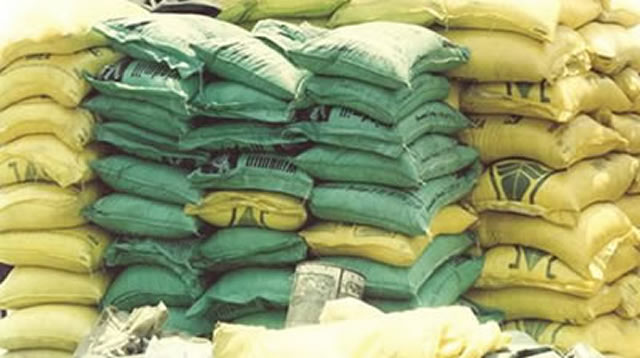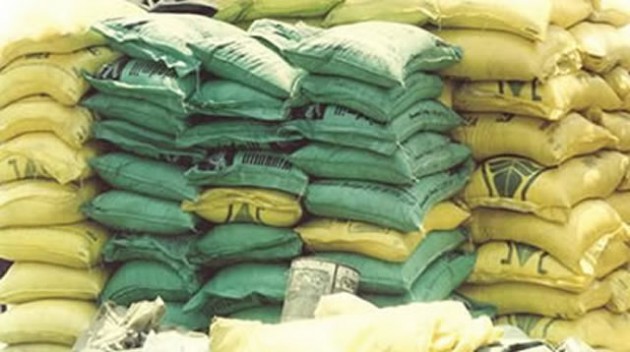Fertiliser prices slashed by 6pc

 Elita Chikwati Agriculture Reporter
Elita Chikwati Agriculture Reporter
The fertiliser industry has so far slashed prices by 6,5 percent and further reductions are expected by end of this month, as farmers step up preparations for the 2015-16 summer cropping season.
The industry has targeted to reduce the price by up to 20 percent this season thanks to the increase in capacity utilisation from last year’s 30 percent to 80 percent following local and foreign interventions.
A survey by The Herald established that a 50kg bag of compound D fertiliser which used to cost around $32 now costs $29, while a 50kg bag of ammonium nitrate costs $34 from between $36 and $38 previously.
But some shops visited yesterday were still to adjust the prices.
Fertiliser industry spokesperson Mr Misheck Kachere yesterday confirmed the decline in prices and said they will continue to be reviewed downwards throughout the season.
“The price reductions will be gradual as capacity utilisation will not change overnight,” he said. “Prices have declined by 6,5 percent. For instance, a tonne of compound D used to cost $620, but now costs $580.
“The industry received $5 million from the Reserve Bank of Zimbabwe to resuscitate Dorowa Minerals and by next month the company will be running at full capacity. Zimphos is accessing $10 million from RBZ. Already, $5 million has been released for use this season.”
Mr Kachere said ZFC accessed $10 million from Agribank and an additional $5 million from CABS and this was helping improve capacity utilisation.
“We are meeting as an industry at the end of this month to assess the situation and there can be further reduction in fertiliser prices,” he said.
“Currently, we are producing 30 000 to 35 000 tonnes of fertiliser per month, but last year during the same period we were producing around 20 000 tonnes per month.
“As we move closer to the season and with fertiliser sales picking, we will be increasing production.”
Mr Kachere said the industry will continue to import ammonium nitrate to supplement that produced at Sable Chemicals.
The fertiliser industry has already imported the 80 000 tonnes of AN to meet the country’s requirements, with the last consignment being offloaded at Beira.
“We have made imports earlier because demand for the commodity increases when the season is underway and it will be difficult to access the fertiliser on the market,” said Mr Kachere.
Government now charges a 25 percent fee on fertiliser imports to protect local companies from cheap imports.
Mr Kachere dismissed fears that the industry could reduce fertiliser prices and cut on nutritional components.
“Actually, we are looking at increasing the components,” he said. “We want to make high analysis fertilisers also. We are not going to compromise on quality. Farmers can even have fertiliser prepared according to their orders.”
Mr Kachere said the industry had started distributing fertiliser to different outlets, including those in farming areas.
Zimbabwe Farmers’ Union president Mr Abdul Nyathi yesterday said it was worrying that some shops had not adjusted fertiliser prices.
“The industry should inform farmers on the changes and ensure retailers adjust prices,” he said. “This will protect farmers from being duped by retailers.”
Zimbabwe Commercial Farmers’ Union president Mr Wonder Chabikwa said he hoped the price reduction will eventually get to 20 percent.
“This move (of price reduction) is noble and will enable farmers to procure enough fertilisers,” he said. “The decline in fertiliser prices will reduce production costs and increase farmers’ viability.
“Hopefully, chemical and seed suppliers will follow suit since banks have reduced borrowing costs.”
Weather experts have predicted that their will be normal to below normal rains in Zimbabwe this season, a development that calls for farmers to be cautious and embrace drought resistant crops.










Comments